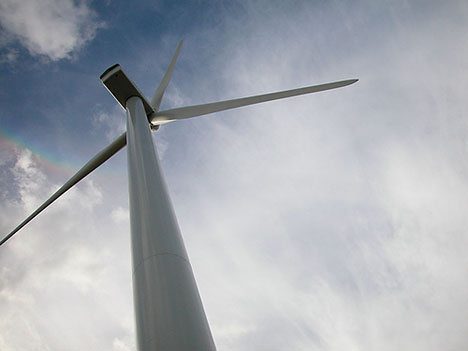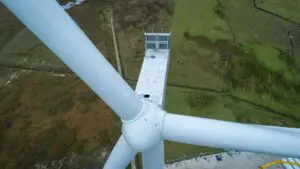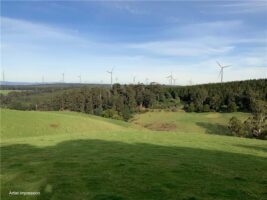The federal government has announced the appointment of a National Wind Farm Commissioner, and the members of a scientific committee, as part of its agreement with cross-bench Senators and some government backbenchers who wanted to try and close down the wind industry in Australia.
Federal environment minister Greg Hunt said in a statement on Friday morning that large-scale solar industry veteran, Andrew Dyer, had been appointed to the role for a period of three years, to “facilitate resolution of complaints” about wind farms, and to submit an annual report on this to Parliament.

The members of the scientific committee were also announced, including RMIT Adjunct Professor Jon Davy (chair), one of Australia’s leading acoustics researchers; University of Sydney Professor Simon Carlile (who is also senior director of research at the Starkey Hearing Research Centre, University of California Berkeley); clinical professor David Hillman (from Sir Charles Gairdner Hospital Perth); and Dr Kym Burgemeister, Acoustics Associate Principal, Arup.
Hunt – who seemed to have been enjoying a new lease on life in his portfolio under his new boss, even showing up “on behalf of Prime Minister Turnbull” as a late-entry speaker at this week’s All-Energy Australian conference in Melbourne – said the appointments were made in line with the Coalition’s commitment “to respond to community concerns” about wind farms.
This commitment first surfaced in June in a leaked draft letter from Hunt to a group of anti-wind cross-bench Senators, who have latched on to community complaints about wind turbine noise and its impact on the health of humans (and dogs, sheep, chickens, migratory birds, etc).
As we reported back then, the proposal – as well as inspiring a new thread of Twitter satire under #allthecommissioners – stunned, angered and disappointed the renewables industry and its supporters in equal measure.
“The commitments made by Minister Hunt in this deal kowtow to anti-wind interests and will add fuel to the scare campaign against wind energy,” said Friends of the Earth renewable energy spokesperson Leigh Ewbank, at the time.
“It’s astonishing that the minister responsible for our national response to climate change is complicit in efforts to demonise wind farms. …The public health impacts of coal are well-documented, yet the Abbott government is proposing to regulate clean and safe wind energy on health grounds. It’s the stuff of satire.”
But the mood in the industry now that Hunt has made good on his promise, appears to be more along the lines of resigned acceptance: They’re not sure why such measures are necessary, but if it must happen, then these are probably the best people for the job.
Dyer, for example, as well as being a former chairman of the Telecommunications Ombudsmen Council, has experience in large-scale renewables development, albeit with large-scale solar thermal and not wind, as the Australian face of solar tower developer BrightSource Energy.
Interestingly, BrightSource is no stranger to controversy about unwanted impacts of renewable energy technology. It’s thermal solar power tower project at Ivanpah reported 321 avian fatalities over six months in 2014, 133 of which were connected to solar flux, although opponents claimed thousands more.
The Ivanpah project has also been accused – unfairly, it would seem – of guzzling precious water resources in the drought-stricken US state California.
Australian Wind Alliance national coordinator, Andrew Bray – who just today penned this article welcoming signs from the Turnbull-led Coalition that it is ready to end Abbott’s war against wind – described Bray’s appointment as “the act of a confused government.”
“On the one hand you have Environment Minister Greg Hunt insisting that this new government is ‘rock solid’ on renewables, but today he is out there appointing an unnecessary commissioner and committee – wasting time and money,” Bray said.
“Let’s not forget that these appointments are a hangover from the Abbott Government, which did a deal to keep anti-wind cross-benchers happy.
“We already have the National Health and Medical Research Committee, state ombudsmen and regulatory bodies which provide reliable information, based on the latest research and evidence. We don’t see a need to duplicate such work.”
Clean Energy Council chief Kane Thornton said he welcomed the appointments, and hoped they would help return a more sensible tone to the debate, which had “entered some strange territory during the recent Senate Inquiry into Wind Farms.”
“We expect that these new appointments will help to blow away some of the conspiracy theories about wind farms that have been championed by a small number of federal senators over the last few years,” Thornton said in an emailed statement on Friday.
“If Australia is serious about delivering clean energy at the lowest possible cost and modernising our energy system, wind energy is one of the most important technologies we have available to us. It is also supported by the majority of Australians, who want more renewable energy.
“We need to work together sensibly to address genuine issues without overt political interference. On face value these appointments can help to achieve that.”






